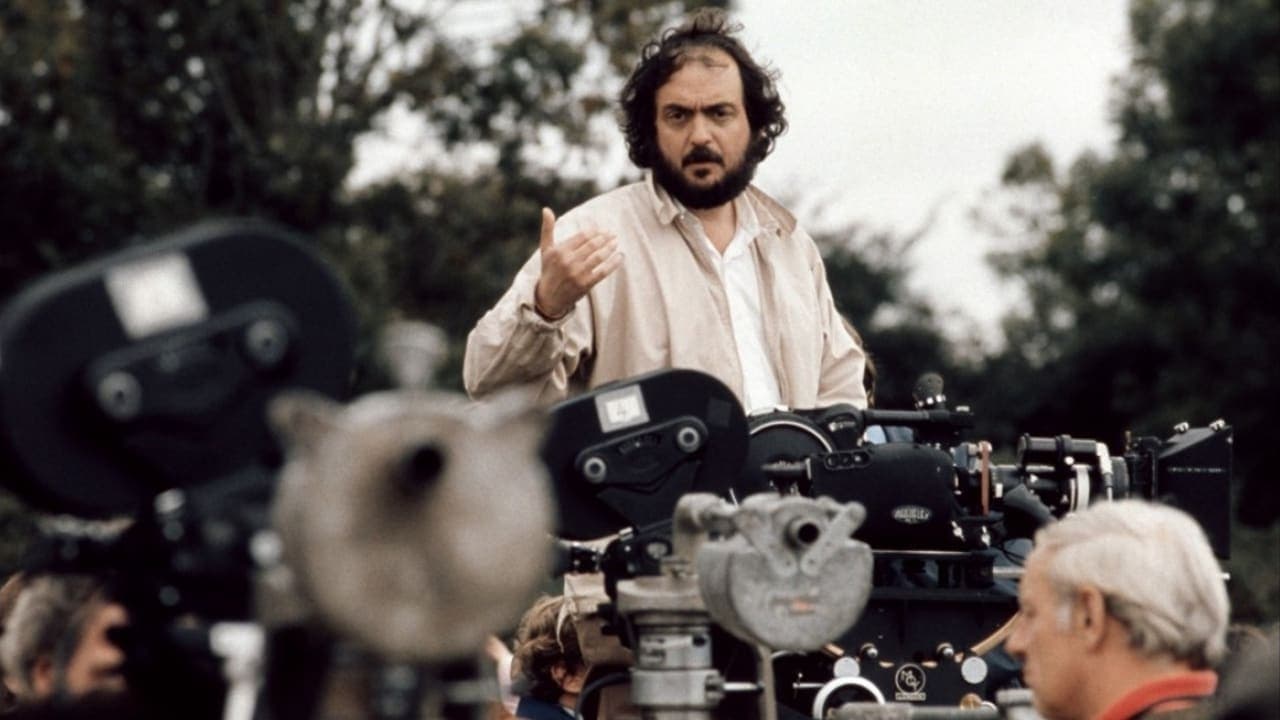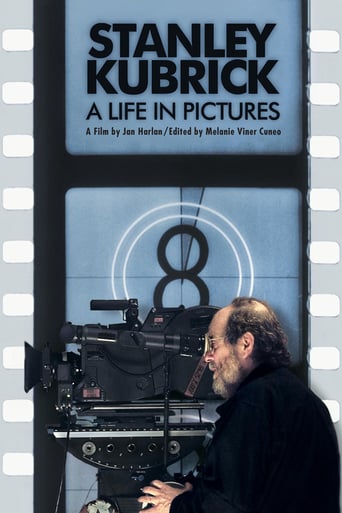SmugKitZine
Tied for the best movie I have ever seen
Pluskylang
Great Film overall
Robert Joyner
The plot isn't so bad, but the pace of storytelling is too slow which makes people bored. Certain moments are so obvious and unnecessary for the main plot. I would've fast-forwarded those moments if it was an online streaming. The ending looks like implying a sequel, not sure if this movie will get one
Brennan Camacho
Mostly, the movie is committed to the value of a good time.
henden_jr
As a Stanley Kubrick fan I was really looking forward to seeing this documentary, in a hope of eventually getting more in depth in his life and history of filmmaking. First of all I think that this is a very powerful and well directed documentary, in which the viewer get to follow the timeline from all since he was born and growing up, including his rise in career ect, leading up until his death in 1999. In between all the footage surrounding Kubrick´s life, the documentary also shows the timeline of all the movies he has ever done, all from his first to his very last work. I already knew a lot of Stanley Kubrick and his movies going into this documentary, but some of the interviews and behind the scenes footage also provided a lot of things I never knew about, so that was kind of surprising and interesting as well. There isn´t really that much else to say about this film, other than saying it is a great documentary put together, and with a fantastic and respectful conclusion to Kubrick himself in the end. If you have seen some of his films or want to learn more about this legend of a filmmaker, this is a much watch.
Martin Teller
A thorough overview of the director's career, one that makes me want to watch his movies for the umpteenth time. I do have a couple of gripes about the documentary, though. Tom Cruise is a lousy narrator. Whatever you think of him as an actor, his voice, his intonation is very plain and flat. Also, the film is almost entirely gushing. Don't get me wrong, I love Kubrick. Everyone loves Kubrick, it's practically a cliché, like saying you love the Beatles. But there are valid criticisms that can be leveled at his films, and very few of those are voiced here, and even those are quickly dismissed. A little less fawning would have been nice.
Max_cinefilo89
Because of his reclusive nature, Stanley Kubrick was never the best choice of subject for a documentary, in life as well as in death. Then again, that depends on who's behind the camera - in this case, the late director's brother-in-law and collaborator Jan Harlan, who also appears as one of the interviewees.Harlan's choice is very simple: skip any attempt to understand the man and just focus on what we have, namely the pictures (hence the film's title). Not just the movies, but also the photos he took in his youth, before discovering cinema. This aspect is covered through comments by friends and family members. Fans, however, are probably more interested in what people have to say about the films, and so we've got some of the key cast and crew of almost all of his movies (one notable exception is Dr. Strangelove, given Peter Sellers and George C. Scott died a long time before Harlan shot the documentary) describing their experiences. In addition, other filmmakers express their sincere admiration for Kubrick, with heaps of praise coming from Scorsese, Spielberg (who directed the Kubrick-inspired A.I.) and Woody Allen (the original choice for Sydney Pollack's role in Eyes Wide Shut).All possible anecdotes surrounding the man and his methods are recounted with joy, and the effect his films had on culture and society are explored in detail. Hearing Allen's first impressions of 2001 is refreshing (he didn't like it at first), whilst Scorsese's reaction to Paths of Glory is a perfect tribute to that picture's power ("It was so honest, it was shocking!"). The most famous controversy remains that surrounding A Clockwork Orange, and it's almost touching when Kubrick's widow recalls his decision to withdraw it from theaters in England until his death. We don't learn anything new about the great director, but hearing it from those people completely justifies Harlan's effort.That said, there is one little problem in the film, and that's the fact that everyone is completely incapable of saying anything bad about Kubrick. Okay, maybe his death has something to do with it, but after dozens of occasions during which both Jack Nicholson and Shelley Duvall berated him for how he treated them on the set of The Shining, hearing them say it was generally a positive experience is surprising to say the least. The closest anyone comes to a bit of criticism is when Malcolm McDowell, always the ultimate Kubrickian icon, describes their relationship like this: "I loved him one moment and wanted to kill him the next!".Overall A Life in Pictures doesn't add much to what we knew about one of the world's best filmmakers, nor does it take anything away. But remembering him through his work and the people who appeared in his movies is the most appropriate way to make a chronicle of his eventful life.
sebadee-2
Not a single interview with Stanley Kubrick features in this documentary about him. However the list of collaborators is so long and deep this hardly matters. There are glimpses of him at work on several films while his collaborators describe the experience. The film must have been meticulously researched as there is such a wealth of detail to enjoy. The three scenes that stand out are the excerpt from his first feature film - The Killing; the f/0.7 lens used to shoot Barry Lyndon and the footage of him as a boy at the end of the film. At the end you are left feeling that you have learned so much about Kubrick yet he somehow escapes definition; he remains elusive, mysterious even. An excellent portrait of a brilliant man.

